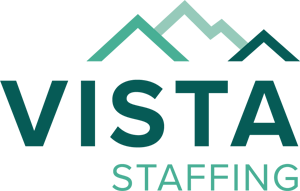
Interventional Cardiology Fellows: How to Stand Out and Land Your Dream Job After Fellowship
When it comes time to apply for your first job out of fellowship, how will you stand out from other fellowship-trained interventional cardiologists and get the attention of a recruiter or hiring manager?
More than 350 cardiologists enter interventional cardiology fellowship programs each year, according to the American Board of Internal Medicine (ABIM). With such a deep pool of candidates, it is imperative to showcase your utmost strengths and abilities.
To successfully navigate the competitive landscape, candidates should remain flexible during the interview process, according to Dave Alexander, physician recruiting manager at VitalSolution. “Every opportunity will have a slightly different interview process, and as a potential candidate, you should be as accommodating as possible. Asking questions about what to expect and about timelines is acceptable, but giving deadlines for feedback or showing impatience about the interview process can be viewed negatively.”
Here are 12 essential tips to help you stand out.
- Know what type of position you want. Your first step in any job search is to assess your clinical interests, cardiovascular skills, professional goals, family needs, location requirements, and salary needs. Knowing what you want can help narrow down your search and help ensure you’re a good fit for the position.
- Work your network. Whether you plan to practice in your current community, travel, or relocate, attending events hosted by state medical associations and specialty societies, such as SCAI, can provide an opportunity to meet potential job leads. In addition, reach out to physicians, faculty and new grads you worked with during your residency or fellowship to help you connect with a practice or to put in a good word on your behalf.
- Consider moonlighting. If you have room in your schedule, consider moonlighting with a practice you want to join to get a feel for the practice environment. It’s a great way to get your foot in the door and gain insider intelligence about the cardiovascular practice’s culture.
- Clean up your digital presence. If your social media pages are visible to the public, a recruiter can scroll through your posts and pictures. Delete any unprofessional photos or adjust your security settings to ensure only those you want to see your posts can.
Adjust your CV to highlight the strengths within your skill set that align with the job description.
Dave Alexander, Recruiting Manager
- Refine your CV. Your curriculum vitae (CV) should be substantive but concise, especially at this point in your career. It’s a history of what your career has been, while the cover letter and interview will help you explain where it’s going.
Since employers have different criteria when reviewing a CV, it is crucial to ensure that the document is scannable and allows for quick access to key information. Highlight aspects of your education and training that are relevant to the position you seek. For example, if the position you’re applying for involves leadership skills, highlight your supervisory experience.
Avoid writing paragraphs; you can always provide more detail during an interview. The American Medical Association offers some tips for creating an effective CV. Be sure to proofread all materials carefully.
“Provide an abridged CV that is no more than three pages; you can always list additional information available on request,” Dave adds. “Most of the time, someone will spend a short period looking at your CV before deciding if you are a potential candidate, so list your strongest attributes toward the top of your CV to give visibility to those items first. And be sure to customize your CV to the role you are applying for. Take the time to read the complete job description, including the required and desired skill sets. Then, adjust your CV to highlight the strengths within your skill set that align with the job description.”
- Prep your references. You will likely need to supply a few references during the job search process. Make sure that everyone on your list of references knows to expect calls from potential employers. Consider telling them where you applied and what feedback you think will be most important for them to convey to a recruiter.
- Keep your schedule flexible. Being flexible with your schedule demonstrates your willingness to be a team player. To the employer, it can signal that the candidate cares about the success of the team and is willing to work together to achieve goals. It also shows adaptability. In a hospital or clinical setting where the environment is often dynamic and fast-paced, the ability to adapt to change is essential.
- Do your homework. Preparation is key and will help you stand out among other candidates for the position. Be sure you understand the practice and what the position entails. Be prepared to explain how your experience makes you a good fit for each specific role.
- Know what you bring to the table. Make a list of your accomplishments starting with the most important or most prestigious. You’ll want to highlight experiences and accolades that speak to your skill level, the number and types of cases that you performed, and your specific interests. Show your competency without being too arrogant or too modest. Be ready to share examples of challenging cardiology cases you’ve handled and details about patient outcomes.
- Act professionally. Be on time to show you’re reliable and serious about the opportunity. Consider wearing a business suit paired with a well-groomed appearance. Be courteous to everyone you encounter during the interview process.
- Let the interviewer get to know you. Questions about your family and hobbies are designed to help the recruiter get to know you and your personality and help them determine how well you’ll fit the practice’s or hospital’s culture. Keep controversial opinions to yourself, but be open to sharing a bit about what you like to do outside of work.
- Ask questions. You don’t want to commit to a position that’s not the right fit. Be sure to ask specific questions about things like patient acuity, caseload, and call schedules to ensure the opportunity fits your needs and expectations.
“Candidates are evaluated on communication style during the interview process, and how you respond to interview questions can be perceived as how you will communicate with patients or other providers in the network,” Dave explains. “Most practices want a provider who can deliver positive patient care experiences and work well with other providers to drive patient referral patterns. Therefore, communicate with recruiters like you’d want someone to communicate with your loved one in a patient care scenario.”
Whether you’re an interventional cardiology fellow or a seasoned physician, join our team to receive the support and benefits you need to grow in your career. Contact us to learn more about our opportunities.
 company
company 
 (866) 755-7519
(866) 755-7519











